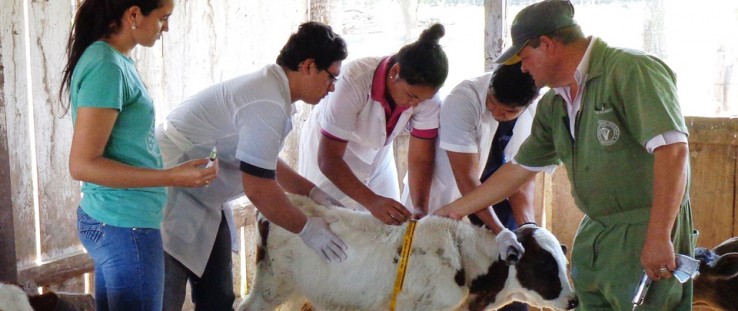 Young members of Cooperative Liberación Norte learn sanitation techniques from a program specialist.
USAID/FECOPROD
Young members of Cooperative Liberación Norte learn sanitation techniques from a program specialist.
USAID/FECOPROD
 Young members of Cooperative Liberación Norte learn sanitation techniques from a program specialist.
USAID/FECOPROD
Young members of Cooperative Liberación Norte learn sanitation techniques from a program specialist.
USAID/FECOPROD
Speeches Shim
Take a drive through rural Paraguay and you will see evidence of development projects that didn’t quite succeed. This includes abandoned facilities with the fading logo of some project that was probably launched with fanfare and great expectations. In some cases, these facilities house equipment that was never even used.
The Cooperative Liberación Norte might have fallen into this category. Eight years ago, there was a ribbon cutting event and speeches from officials when the government of Paraguay donated seed capital, a small building and a 2,000-liter cold storage tank to the 124 members of Liberación Norte.
Although the donations were significant, there was little follow-up support. The government didn’t offer training or guidance on the essentials, such as how to secure a loan, how to operate and maintain the equipment, how to strengthen Liberación Norte as a dairy farmer cooperative, or how to increase milk productivity and quality. Without a reliable market for its product, there was little incentive to maximize milk production, or even go to the trouble of taking the milk each morning to the collection center. Interest in the cooperative waned, and members started to drop out.
Don Antonio Vera, president of the cooperative, remembers the early days back in 2008: “We never had a single Guaraní [local currency] of revenue,” he says. “We were always operating at a loss, and none of the members wanted to continue to contribute money to maintain the administrative office. We were down to just 63 members.”
Liberación Norte tried different approaches over the years, including growing different crops, but it never prospered. The cooperative only remained open because of a few determined members.
In July 2014, USAID hosted an event to mark the opening of an Inclusive Value Chains (IVC) Office in the nearby departmental capital of San Pedro. At the launch, the project director explained that the IVC program was seeking to help motivated producer organizations overcome organizational, production and commercial challenges. An effective producer organization, the director said, is member-led and advances its interests by providing services such as access to credit and lower-cost inputs, collection facilities and commercialization opportunities.
Shortly afterward, Antonio Vera visited IVC’s office.
Liberación Norte, in the district of Chore, is in an area dominated by small family farms, many of which have some animals, including a couple of cows, and cultivate a variety of crops. Average monthly family income in Chore is about $250 month. For the most part, smallholders don’t get much milk per cow, nor is the milk of particularly good quality.
Although most residents of Chore have been farmers all their lives, very few have any real understanding of how to maximize their productivity or ensure quality. The yields on small farms throughout Paraguay, and the developing world in general, are a fraction of what they could be if better practices and technologies were applied.
IVC provided trainings on both the technical aspects of dairy farming and how to operate an effective cooperative. Trainings covered a range of topics, including improved grazing practices, hygiene, artificial insemination, administration, bookkeeping and credit.
“What we know about running a farm is what we learned from our parents,” said Bernarda Gonzalez, a dairy farmer and member of Liberación Norte, during one of the IVC trainings. “The technical experts from this program taught us all sorts of new things such as how to properly milk a cow and what grasses to grow for feed. When the program started, my two cows produced 12 liters a day. Now, with the same two cows, we get 20 liters a day.”
IVC, which is implemented by a federation of farmer cooperatives, also used its connections to play matchmaker. Friesland, a large regional dairy cooperative owned and operated by a Mennonite colony 100 kilometers from Chore, had recently opened a milk processing plant with capacity of 50,000 liters a day. When the USAID program intervened, Friesland’s plant was operating at just a fraction of capacity and the cooperative was eager to source more milk that met its quality standards.
“When we started working with IVC, the plant was operating at just 10,000 liters per day,” says Juan Carlos Wascholtz, Friesland’s dairy plant manager. “Thanks to the small producer groups IVC connected us with, we are now at 20,000 liters per day. We plan to continue to collaborate with IVC and its partner organizations so that we can reach maximum capacity.”
When Liberación Norte members learned that Friesland would send a truck twice a week to carry off as much milk as they produced, interest perked up. Historically, small producers sold to intermediaries, who generally paid poorly because producers had no alternative market.
Liberación Norte members began applying what they learned from IVC and their cows started producing significantly more milk per day. On average, they went from around 6 liters to more than 10 liters per cow in daily production. Farmers even put cows into production that were previously intended to end up as beef. Those who had the means bought additional cows. Others obtained loans to grow their herds.
Finally, many who had left the cooperative, or had never joined to begin with, got involved, as they saw belonging to Liberación Norte as a vehicle for advancement. Membership climbed to 226.
Eighteen months of partnership brought about a transformation.
Liberación Norte went from collecting 2,000 liters to 72,000 liters per month. Monthly sales to Friesland jumped from $500 to $21,900. This dramatic gain can be attributed to improved productivity (more liters of milk per cow), an increase in the average number of cows per member, and the sharp uptick in membership.
As production climbed, USAID donated an additional cold storage tank and helped the cooperative to secure a loan to buy a small milk collection truck, which brings milk back from the individual farms to the central collection center. As production spiked further, Friesland provided yet another cold storage tank on loan. Today, Liberación Norte has capacity to store 12,000 liters of milk.
The IVC project has a network of four regional offices that works with approximately 200 small producer groups on organizational strengthening, improved agricultural practices, access to credit and access to markets. The project is also helping municipal governments identify, plan and execute projects that benefit small producers such as rural road maintenance, agriculture extension services and rural electrification. Efforts are also underway to develop a model whereby regional offices continue to operate beyond the end of USAID’s support in 2018, through a combination of support from municipal and departmental governments as well as the producer organizations themselves.
“This program makes a strong case for why working with local partners has inherent advantages,” says Shirley Zavala, a USAID/Paraguay economic growth and environment specialist. “FECOPROD [the implementing partner] has such an extensive network, that they can facilitate deals and leverage resources that other partners couldn’t. This is because of their contacts within the government and the private sector as well as their long history of working in this particular region on these very issues. The model has proved successful.”

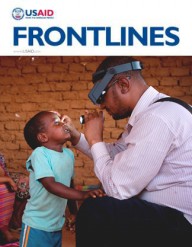

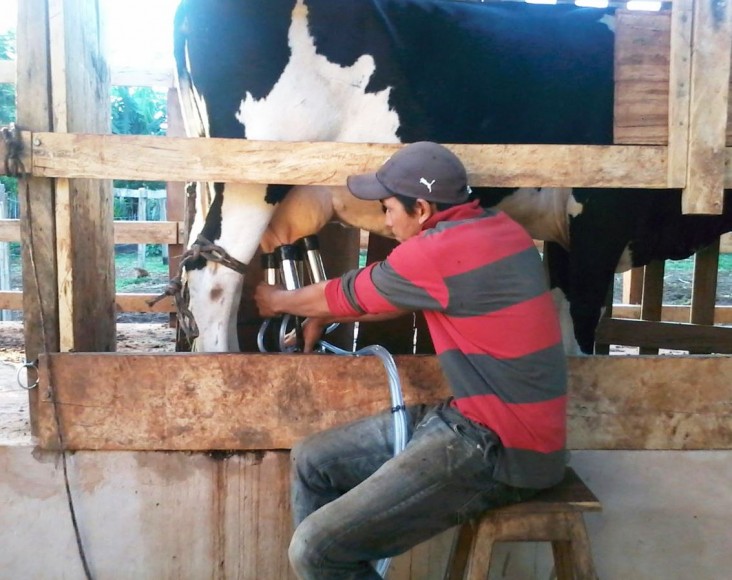
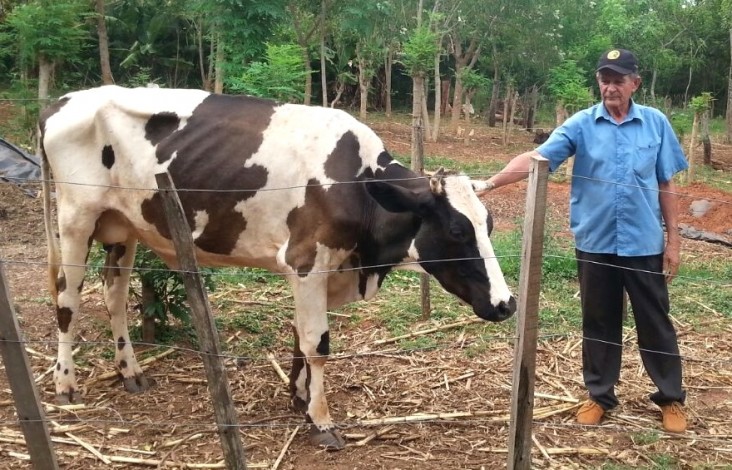
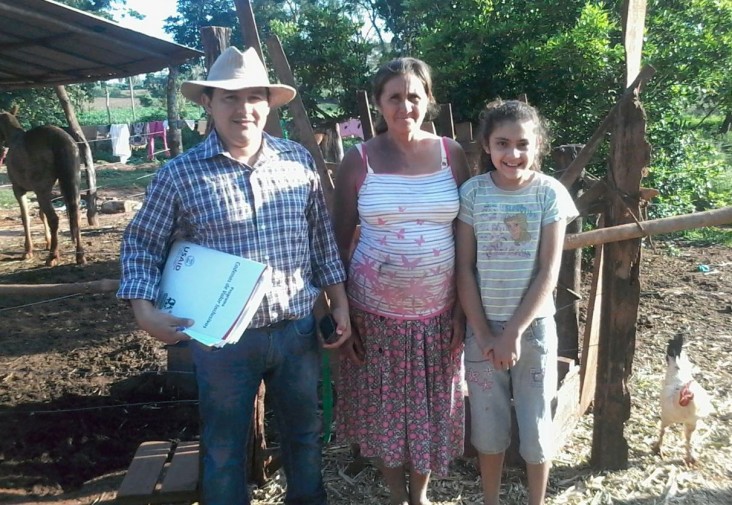
Comment
Make a general inquiry or suggest an improvement.